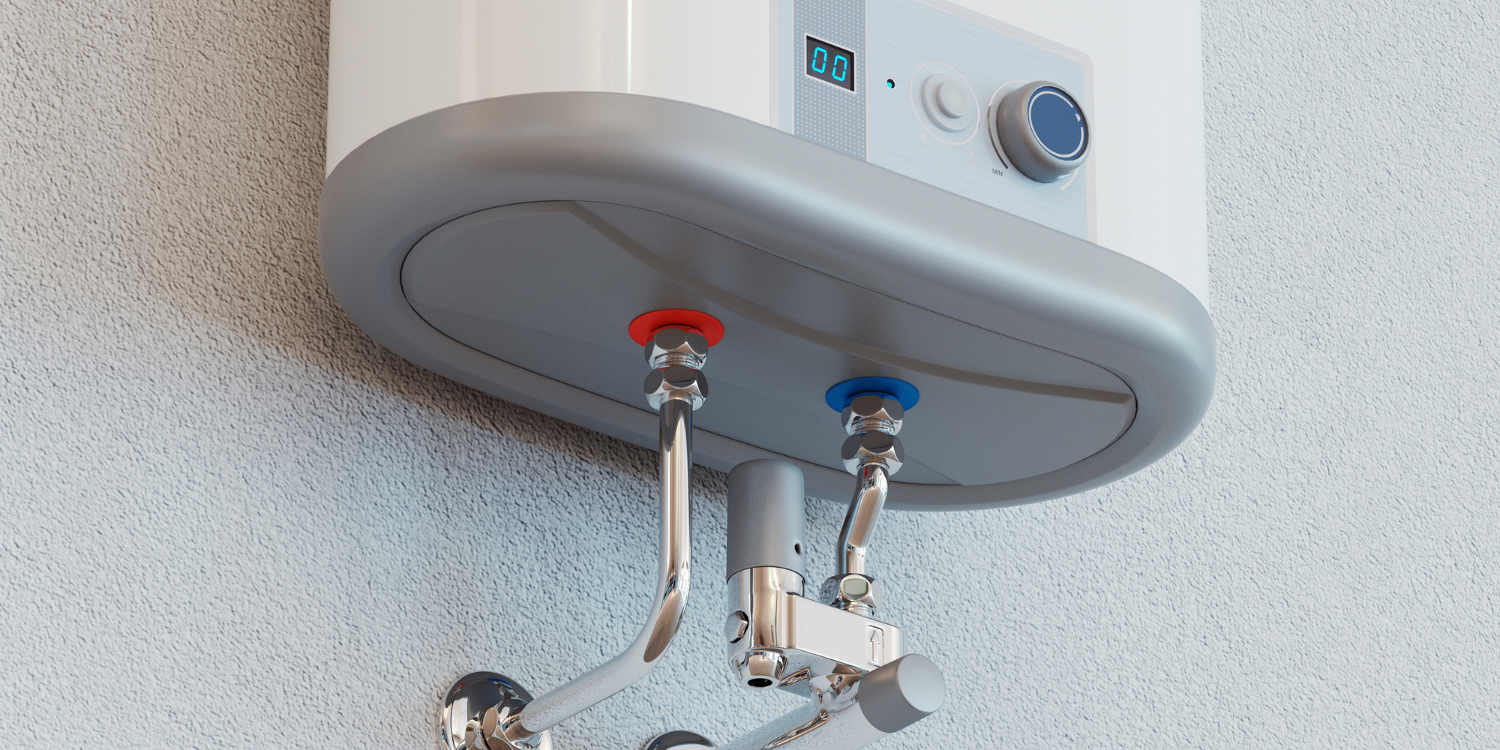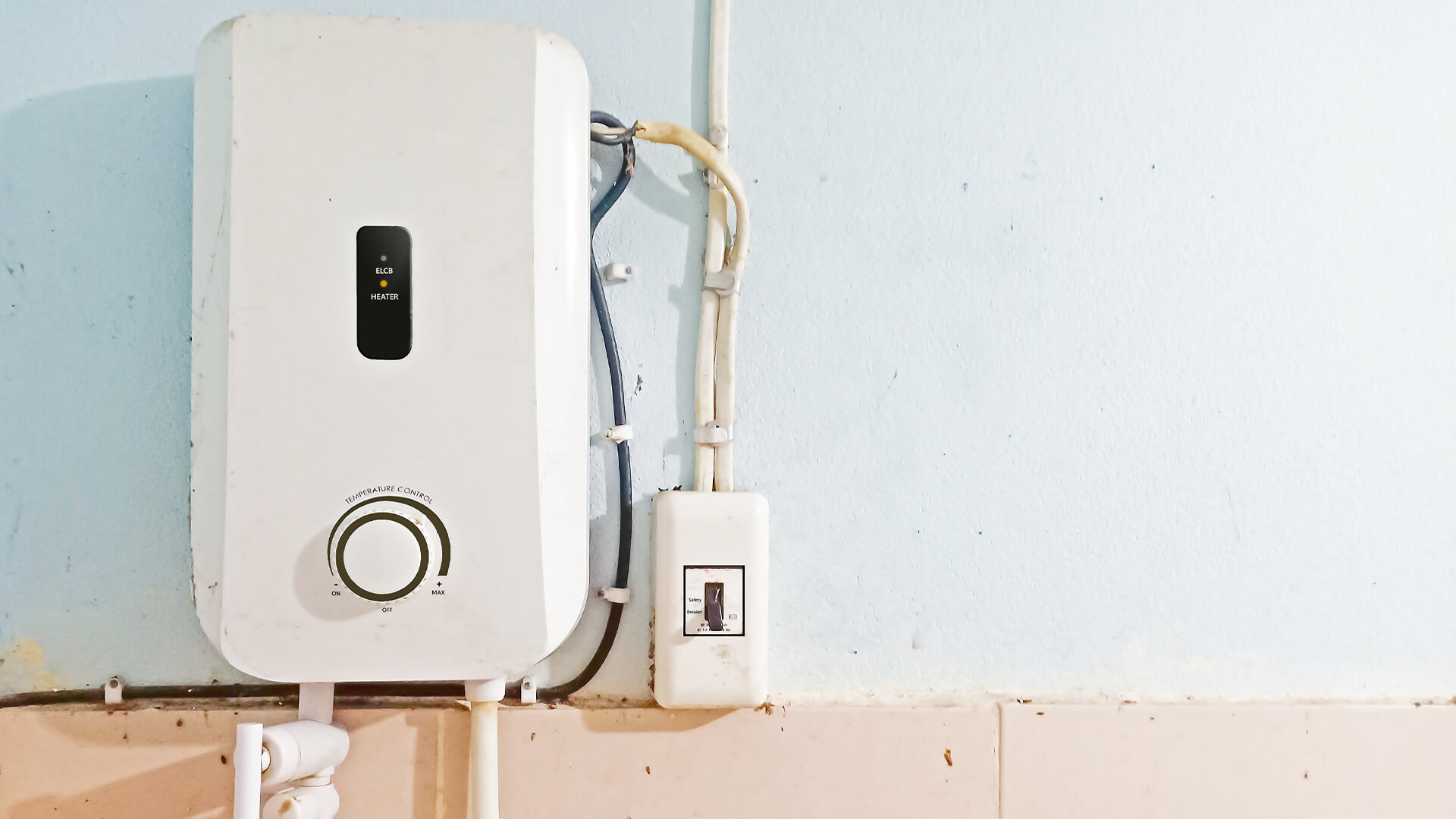How Continuous-Flow Water Heaters Offer Unmatched Benefits
How Continuous-Flow Water Heaters Offer Unmatched Benefits
Blog Article
What are your opinions with regards to Pros and Cons of Tankless Water Heater?

In a globe where ease and effectiveness reign supreme, it's no surprise that property owners are regularly looking for smarter methods to manage their home's power intake and convenience. One development that has actually continuously gotten appeal is the tankless water heater. However just what makes these systems stand out from the conventional tank-based models the majority of us matured with? Let's dive in and explore the advantages of tankless hot water heater, assisting you make a decision if it's time to make the switch in your home.
Intro
Photo this: you step into the shower after a long day, expecting a calming cascade of hot water, only to be greeted by icy beads due to the fact that the last person utilized it all up. Audio familiar? Typical water heaters save a set quantity of warm water, meaning you go to the grace of that tank's supply. Tankless systems, on the other hand, warmth water on demand. Say goodbye to going out mid-shower, say goodbye to wrestling with schedules simply to make sure warm water is available.
Comprehending Tankless Hot Water Heater
What Are Tankless Water Heaters?
Tankless water heaters, occasionally referred to as on-demand or instant hot water heater, supply hot water just as it's needed. As opposed to storing gallons of pre-heated water, these devices kick into activity the minute you activate the faucet. Water goes through a warmth exchanger, heating up in real-time, implying you get a continuous circulation of warm water without the requirement for a big container sitting lazily by.
How Do They Differ from Conventional Systems?
Standard heaters hold a storage tank of warm water, using power to keep that container at a regular temperature level. Tankless systems eliminate the standing supply, reducing squandered energy and the cumbersome impact of a big cylinder. Basically, you're updating from a "stockpile" way of thinking to a "made-to-order" approach.
Typical Types of Tankless Systems
Tankless water heaters typically come in two ranges: gas and electrical. Gas designs have a tendency to deliver greater flow prices, perfect for larger families, while electrical versions often offer smaller sized homes and are generally easier to install. Additionally, some systems are created for point-of-use (offering one fixture) while others can deal with the whole home's hot water demands.
Key Advantages of Tankless Hot Water Heater
1. Endless Hot Water Supply
Ever had to schedule showers so everybody gets their fair share of hot water? With tankless, that becomes a distant memory. As long as the heater's circulation capability isn't surpassed, you can take back-to-back showers without becoming a popsicle.
2. Power Effectiveness and Expense Cost Savings
Say goodbye to heating a titan storage tank's well worth of water and keeping it warm all day. Tankless heaters lower standby power losses, which can lower energy bills. While the initial price might be higher, the lasting savings often validate the financial investment.
3. Space-Saving Layout
If your home is short on storage, eliminating the cumbersome storage tank liberates valuable room. Tankless devices are compact and can commonly be mounted on walls, stashed in corners, or set up in tight energy storage rooms without gobbling up the whole room.
4. Longer Lifespan
A well-maintained tankless water heater can outlive its tank-based cousin. Standard tanks could last 10-15 years, while tankless versions can keep downing along for two decades or more, making them a solid financial investment over time.
5. Improved Water High Quality
Saving water in a tank can sometimes cause debris accumulation or a somewhat "off" taste. With tankless systems, fresh water is heated right away, decreasing the possibilities of debris accumulation and potentially providing cleaner-tasting water.
Factors to consider Before Switching
Though the benefits are engaging, it's a good idea to consider a couple of variables before fully devoting.
Preliminary Financial Investment Expenses
Tankless heating systems commonly include a higher ahead of time price tag. Between the device itself and possible installment alterations, the first expense may give you sticker shock. Yet remember to watch it as a long-term investment.
Installment Needs
Depending upon your home's framework, you could need additional electric ability or gas line upgrades. Guarantee you recognize the installation requirements and consult with an expert to stay clear of surprises.
Assessing Your Home's Water Use Patterns
If your family simultaneously makes use of several components with high warm water demand, see to it the unit's flow rate fulfills your needs. Knowing your use patterns aids you select the ideal size and sort of tankless heating system.
Maintenance and Care Tips
Tankless systems are fairly low maintenance, but they aren't set-it-and-forget-it home appliances.
Normal Cleaning and Descaling
Hard water minerals can accumulate in the warm exchanger, affecting efficiency. Normal descaling (typically suggested yearly) maintains the system performing at peak performance.
Annual Professional Assessments
A yearly checkup from a professional guarantees small problems are caught early. They'll analyze the system's efficiency, seek leaks, and aid keep optimal performance.
Guaranteeing Appropriate Air Flow
For gas versions, correct air flow is essential to securely expel exhaust gases. Make certain airing vent systems are clean and appropriately installed to stop any prospective security hazards.
Comparing Different Brands and Models
Not all tankless hot water heater are created equal.
Looking Into Trustworthy Makers
Try to find respectable brand names with a history of creating quality systems. A trusted supplier typically supplies much better consumer support and longer guarantees.
Reading Evaluations and Individual Feedback
Customer evaluations and responses from next-door neighbors or friends that have actually gone tankless can supply important insights. Sometimes, real-life experiences can be a lot more telling than advertising sales brochures.
Installation: Do It Yourself or Specialist?
While some property owners relish dealing with projects themselves, tankless installation may not be the best time to break out the tool kit.
Advantages and disadvantages of DIY Setup
A DIY install could conserve cash, yet it features threats. Inaccurate installation can cause inadequacy or security concerns. If you're handy and have experience, it may be practical-- but proceed with care.
When to Call an Expert Plumbing Professional
For the majority of, calling a professional makes sure whatever's done correctly. An expert plumber understands local codes, sizing demands, and airing vent parameters, reducing the threat of incidents.
Making best use of Performance
You've bought a tankless device-- currently maximize its performance.
Ideal Temperature Setups
Many people establish their devices in between 120-140 F. Changing the temperature level can boost convenience and cost savings. Experiment to locate a pleasant spot that doesn't lose power.
Pairing with Low-Flow Fixtures
Want to stretch your unit's abilities? Consider installing low-flow showerheads and faucets. They reduce water use, enabling your tankless system to supply a steady stream of warm water without straining.
Environmental Effect
Tankless water heaters line up with greener living goals.
Lowered Carbon Impact
By using much less energy and just heating water as needed, tankless systems can reduce your home's carbon impact, reducing your environmental influence.
Saving Natural Resources
Less power consumption and much less squandered warm water convert into fewer natural deposits being used, an ecological win-win.
That Benefits Many from Tankless Heaters?
The appeal of tankless heating units is that they can fit a range of families.
Huge Households vs. Single Occupants
Large households may enjoy the endless hot water supply, while solitary passengers appreciate the power savings from not heating a whole tank for just one person's morning shower.
Home Owners with Restricted Area
If your home is short on square video, shedding the bulky tank maximizes area for various other essentials-- or maybe simply extra breathing space.
Eco-Conscious Consumers
Going tankless aligns with eco-friendly values, guaranteeing you're not squandering power or resources.
Future Fads in Tankless Water Heaters
The world of home devices is ever-evolving, and tankless water heaters are no exception.
Smart Home Assimilation
Imagine changing your water heater's temperature level using an application or getting maintenance informs on your phone. As smart home technology breakthroughs, we'll see more connection and ease.
Innovations in Innovation
R&D is frequently enhancing warmth exchangers, making devices more efficient and long lasting. Future designs could be even quieter, more small, and better matched for varying climates.
Final thought
Choosing a tankless water heater is greater than simply updating your home's hot water system; it's investing in long-lasting comfort, energy performance, and a greener way of life. By considering your house's water usage, bearing in mind setup needs, and devoting to routine maintenance, you can enjoy a constant stream of hot water without the luggage of a cumbersome storage tank. As technology progresses, you can eagerly anticipate also smarter, much more effective tankless remedies that not just make your life much easier however also benefit the planet.
Why You Should Consider a Tankless Water Heater for Your Home
Energy Efficiency and Cost Savings
Tankless water heaters, also known as on-demand water heaters, heat water only when needed. This means they don't waste energy keeping a tank of water hot constantly. This efficiency translates into substantial cost savings on your monthly energy bills.
Endless Hot Water Supply
One of the significant advantages of tankless water heaters is their ability to provide a continuous supply of hot water. Traditional tank water heaters have a limited capacity and can run out of hot water, especially during peak usage times. In contrast, tankless water heaters can provide an endless stream of hot water, making them ideal for larger families or homes with high water usage.
Space-Saving Design
Tankless water heaters are compact and take up significantly less space compared to traditional tank heaters. They can be installed on walls, under cabinets, or even outside, freeing up valuable space in your home. This makes tankless water heaters a great option for smaller homes or properties with limited space for a traditional water heater.
Longer Lifespan and Lower Maintenance
Tankless water heaters typically have a longer lifespan compared to traditional tank heaters. They can last up to 20 years or more with proper maintenance. Additionally, tankless systems are designed with replaceable parts, which can extend their lifespan further and reduce long-term maintenance costs.
Environmentally Friendly
Reducing energy consumption not only saves you money but also benefits the environment. Tankless water heaters contribute to a smaller carbon footprint by using less energy to heat water. Their energy efficiency and ability to minimize standby heat loss make them an eco-friendly choice for environmentally conscious homeowners.
Customized Temperature Control
Tankless water heaters offer precise temperature control, allowing you to set the desired temperature to meet your specific needs. This level of customization ensures you always have water at the perfect temperature for your comfort and usage requirements.
https://beantownservices.com/blog/consider-tankless-water-heater-for-your-home

Do you appreciate reading about 5 Benefits of Tankless Water Heaters? Give a review down the page. We'd be delighted to listen to your responses about this write-up. In hopes to see you back again in the future. Sharing is nice. Helping people is fun. Thank-you for your time invested reading it.
Call Today Report this page